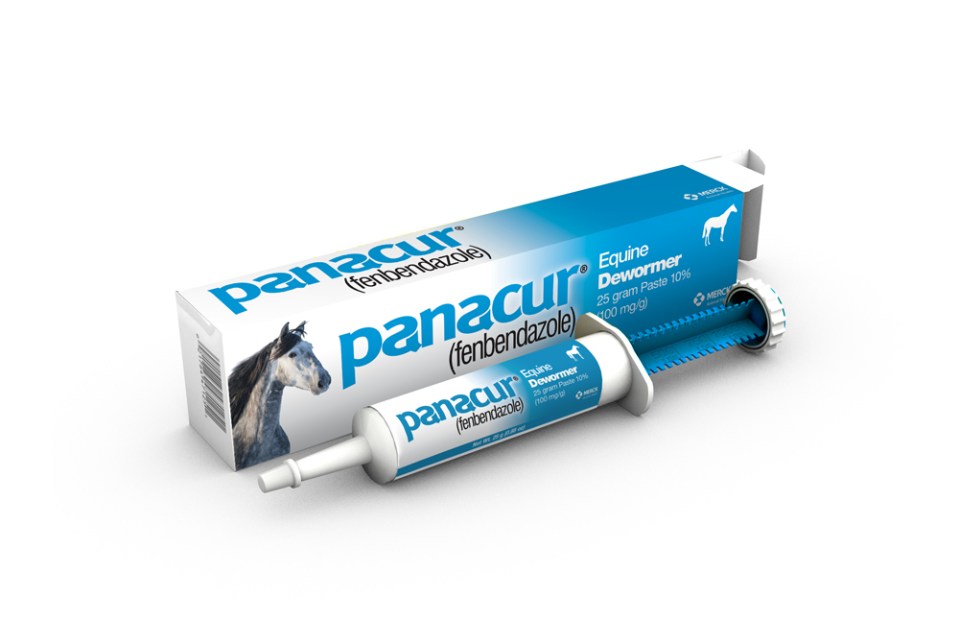
Ascarids
Disease Overview
Horse ascarids (Parascaris equorum), or roundworms, are stout yellow or white worms that can reach up to 15 inches long and primarily affect foals. What’s more, they are the most significant parasite threat to young horses. Foals ingest infective larvae. If enough larvae are present in the body, they can cause respiratory signs, or “summer colds,” as they migrate. Adult roundworms can cause physical damage from intestinal blockage or intestinal rupture.
Merck Animal Health Solutions

PANACUR® (fenbendazole) PASTE 10%
PANACUR® Paste 10% is indicated for the treatment and control of large strongyles (Strongylus edentatus, S. equinus, S. vulgaris), encysted early third stage (hypobiotic), late third stage and fourth stage cyathostome larvae, small strongyles, pinworms (Oxyuris equi), ascarids (Parascaris equorum), and for the control of arteritis caused by fourth stage larvae of Strongylus vulgaris in horses.

PANACUR® (fenbendazole) POWERPAC
PANACUR® (fenbendazole) Paste 10% is indicated for the control of large strongyles (Strongylus edentatus, S. equinus, S. vulgaris), encysted early third stage (hypobiotic), late third stage and fourth stage cyathostome larvae, small strongyles, pinworms (Oxyuris equi), ascarids (Parascaris equorum), and arteritis caused by fourth stage larvae of Strongylus vulgaris in horses.
Parasite Life Cycle
Infection affects the central nervous system.
- Adult ascarids living in the horse’s small intestine lay eggs.
- One-celled eggs exit the horse’s body in feces.
- Eggs become infective and can remain viable for years in contaminated soil in pastures, paddocks or stalls.
- The horse ingests infective larvae that migrate to the liver and lungs.
- Larvae are coughed up and swallowed, entering the small intestine again.
- Larvae become egg-laying adults.
Clinical Signs
- Lack of thriftiness and poor growth
- Lack of energy
- Coughing
- Nasal discharge
- Colic signs associated with small intestinal impaction or rupture
Risk Factors
- Age 2 years old or less
- Breeding operation environment
- Contamination of stalls from previous year’s foals
- Compromised immune system
Important Safety Information
Do not use in horses intended for human consumption.
References
“AAEP Internal Parasite Control Guidelines,” American Association of Equine Practitioners, 2019, aaep.org/sites/default/files/2021-03/Internal_Parasite_Guidelines.pdf.
“Ascarids in Horses,” Extension Foundation, Jan. 22, 2020, horses.extension.org/ascarids-in-horses.
Thomas R. Klei, “Gastrointestinal Parasites of Horses” Merck Veterinary Manual, June 2019, www.merckvetmanual.com/horse-owners/digestive-disorders-of-horses/gastrointestinal-parasites-of-horses.
